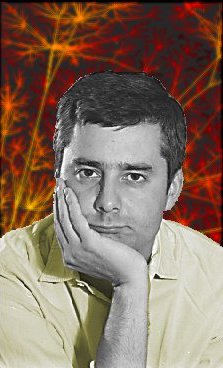Albert-Laszlo Barabasi: "The Architecture of Complexity"
Teleconferenced lecture to be held on Monday January 30, 2006, 18:15.
Room D 16.2, Main Building, ETH Zurich. Event broadcasted from SHARE / Consulate of Switzerland , in Cambridge, Massachusetts.

Networks with complex topology describe systems as diverse as the society, cell, or the World Wide Web. The emergence of most networks is driven by self-organizing processes that are governed by simple but generic laws.
The analysis of social, biological and technological systems shows that nature and human designs share the same large-scale topology, and are governed by similar evolutionary laws. I will show that the structure of these complex webs have important consequences on their robustness against failures and attacks, with implications on drug design, the Internet's ability to survive attacks and failures, and the ability of ideas and innovations to spread on the network.
Albert-László Barabási is the Emil T. Hofman Professor of Physics at the University of Notre Dame. Born in Transylvania, and educated in Bucharest and Budapest, he received a PhD in physics in 1994 from Boston University. After spending a year at IBM's T.J. Watson Research Center he joined the Notre Dame faculty in 1995. His research has led to the discovery and understanding of scale-free networks, describing many complex networks in technology and nature, from the World Wide Web to the cell. His current research focuses on applying the concepts developed by his group for characterizing the topology of the WWW and the Internet to uncover the structural and topological properties of complex metabolic and genetic networks. He is the author of the recent general-audience book Linked: The New Science of Networks (Perseus, 2002). For more information see http://www.nd.edu/~alb
